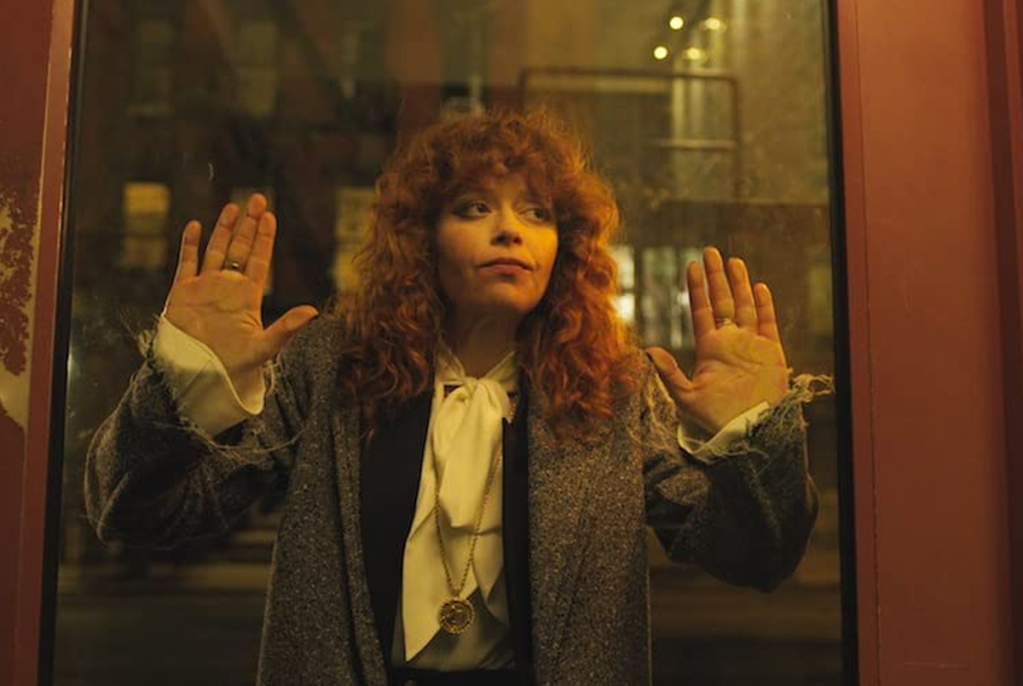The antihero began as the ‘Byronic hero’ and was represented in the prestige television era by unlikable men in gritty dark dramas. Not completely unredeemable and usually handsome enough to catch the female viewer’s eye, this formula gave us Tony Soprano (The Sopranos), Dexter Morgan (Dexter), Walter White (Breaking Bad), Don Draper (Mad Men) and Gregory House (House). But their distaff counterparts were still villains or maidens. What we didn’t have was many antiheroines.
Until quite recently, the closest thing TV had to an antiheroine was Carrie in Sex and the City. It was hard to sympathize with her: most of her problems were her own fault. She cheated on her boyfriends, then wrote narcissistic newspaper columns telling us all about it. She stumbled in her $400 Manolos from one crisis to the next, mostly hampered by her neurotic inability to get out of her own way. While we’ve seen the odd double-act with an equally problematic spouse (The Americans, House of Cards), rarely is a leading woman a likable baddy. There have of course always been bad women on TV — the bitch, the ex-wife, Joan Collins as the scheming Alexis Carrington — but we were never meant to like them. They were villains, not protagonists. They were there to be defeated, not sympathized with.
I’ve spent years longing for the arrival of a female lead as complex as Jimmy McNulty of The Wire. I got my hopes up a few times (Sharp Objects, Top of the Lake, True Detective), but I was always disappointed by the lazy writing, so predictable you can set your watch by it. When a female lead doesn’t act in the appropriate female way, a price must be paid. Usually around Episode Three, when, accompanied by ominous music, we find out that (surprise!) she was raped or was a battered wife. In some way she has to be a victim. Women don’t get to be jerks for free.
Fortunately this is starting to change. In the last couple of years, we’ve had Ruth in GLOW (Netflix), Nadia Vulvokov in Russian Doll (Netflix), and Jackie Quiñones in Hightown (Starz). These women are not nice. None of them comes with a backstory of excuses. In Ruth we have a woman who visibly radiates desperation and a creeping awareness that her chance to make it as an actress may have slipped her grasp. She throws herself (literally) into TV wrestling, with a hammy accent and shiny leotard; before you get too sympathetic, she also sleeps with her best friend’s husband. Nadia from Russian Doll is an obnoxious drunk whose career competence is overridden by her general apathy. Her response to surviving multiple deaths (it’s a high-concept show) is to light another cigarette.
Jackie from Hightown is drug-addled manipulator whose life has been skidding along in the breakdown lane for a while. By day, she’s a ‘fish cop’ for the National Marine Fisheries Service, inspecting boats for illegal hauls. By night, she’s sleeping with vacationing college girls. Just like the amoral male antihero, she’s not evil, but it’s hard to say she’s good. She’s just surrounded by people who are a hell of a lot worse. Jackie gives her life meaning by latching onto her tangential connection to a crime: stumbling out of a seedy motel at dawn, she finds a woman’s corpse on the beach. Bouncing in and out of rehab and in and out of various women’s beds as she seeks the killer, she’s not above using tragedy as a pickup line. ‘I found a dead body today,’ she tells a stranger in a bar. ‘Want to buy me a drink?’
Works every time. As an unpleasant broad myself, I feel represented at last when I see these characters. In a rare moment of equality, we’re finally getting the female bastards we deserve. It’s no surprise that this new generation of female scumbags was brought to us by female show-runners: men can’t grasp that a woman might be bad without a man driving her to it. To find female forerunners this amoral on the screen, we’d have to go back to film noir, where Barbara Stanwyck or Bette Davis played moral ambiguity in a Schiaparelli suit.
Film and TV leads are still overwhelmingly male, so we have a way to go, but actresses are at least getting a broader range of roles than those so memorably spelled out by Goldie Hawn’s character in First Wives Club: the three ages of women in Hollywood are babe, District Attorney and Driving Miss Daisy. Unfortunately, GLOW was canceled after initially being renewed: Netflix decided it was impossible to film a wrestling show with COVID precautions. But Hightown and Russian Doll are coming back. Stay tuned.
This article was originally published in The Spectator’s January 2021 US edition.

























